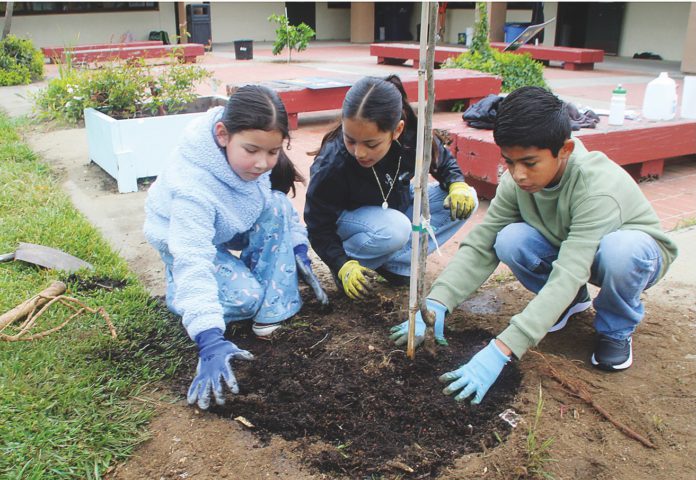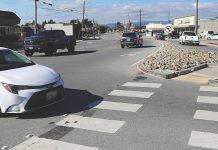
When a group of third-grade students at Ohlone Elementary School planted two trees on their campus earlier this year, it was the culmination of an environmental science project that began when they found a small colony of bats living under the eaves of one of the buildings on campus.
Science teacher Jennifer Higgins Kuechle said that other lessons she had in mind for the project shifted after that discovery.
“When the kids started finding the bats, everybody in the whole school was like, ‘bats, bats, bats,’ and it just evolved,” she said.
And so the students learned about the animals, and the vital role they play as natural pest control.
According to the U.S. Fish & Wildlife Service, the misunderstood creatures eat enough bugs to save the agricultural industry $3 billion annually.
The project was part of the Teacher Leadership Institute for sustainability, funded by the National Oceanic and Atmospheric Association (NOAA) through its Bay Watershed Education and Training Grant Program.
As part of the environmental science project—which focuses on increasing environmental literacy—the students did a campus-wide tree survey to see whether the campus had enough, and found only five different species, which they determined was not enough biodiversity.
“And now we’re finally getting to the action,” she said, of planting the trees.
And while the saplings likely will not provide a home for bats for a while, the class plans to put up bat boxes on the campus to provide a home for the tiny, winged mammals.
“We thought about just having them make bat boxes, but then this just became so much more. This is where they were going with it with their own curiosity.”
Organizers were expecting the final installment of the NOAA grant next year, but with changes at the federal level, there is no guarantee it will be funded.
That leaves local organizers with finding the funds to continue the program into future years.
“We are committed to finding a way to offer the program next year, because the impacts have been so dramatic, and the teachers are asking for it, but it will be scaled down unless new funding is found very quickly,” said Amity Sandage, Santa Cruz County Office of Education Environmental Literacy Coordinator.








